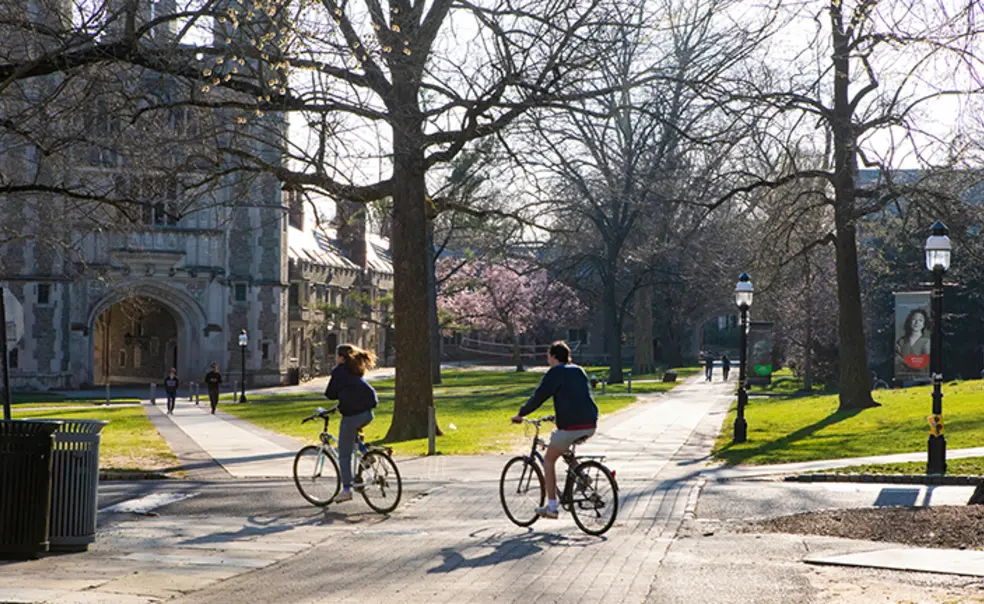Undergraduates Invited Back to Campus For Spring Semester
The University will support remote learning for those who choose not to return to campus
Princeton will invite all enrolled undergraduate students to campus for the spring semester, President Eisgruber ’83 announced in a letter to the campus community Nov. 24.
“During the fall term, we cultivated strong public health norms and practices on the Princeton campus; monitored and learned from experiences with the virus at Princeton and elsewhere; and established an on-campus testing laboratory,” Eisgruber wrote. “In light of that work, we have concluded that, if we test the campus population regularly, and if everyone on campus rigorously adheres to public health guidance about masking, social distancing and other practices, we can welcome a far greater number of students back to Princeton.”
Spring semester classes are scheduled to begin Feb. 1, and the University will support remote learning for those who choose not to return to campus. All undergraduates have been taking courses remotely this fall, with about 215 living in the dormitories. Princeton switched to remote learning last March, as the first wave of COVID-19 infections came to New Jersey.
Eisgruber acknowledged that COVID infection rates in the country and the state are “high and rising.” Figures published by the Centers for Disease Control and Prevention show that new infections are significantly higher than they were in early August, when the University decided to make the fall semester virtual for all undergrads. But, Eisgruber wrote, “we know more today than we did over the summer about what actions we can take individually and collectively to keep our community as secure as possible.” He added that students who choose to return will need to “accept limitations and take on new responsibilities.”
Each of Princeton’s seven Ivy League peers previously announced plans to have a significant number of undergraduates on campus in the spring. The University’s guidelines are similar to those in place at many of the colleges that had more in-person students this fall: Most courses will remain online; masks and social distancing will be required on campus; most social gatherings will be prohibited; and “lock down” plans are in place if infection rates rise significantly. Students also will be tested regularly for COVID-19.
On Monday, Princeton announced it was opening an on-campus COVID-19 testing laboratory, housed in the Department of Molecular Biology. The lab is able to test at least 2,000 samples per day, according to a University news release.
Since late August, all resident students and faculty or staff members working at least eight hours per week on campus have been required to participate in Princeton’s testing program for people who are asymptomatic. Through the week ending Nov. 13, the program has identified 73 positive cases of COVID-19 among nearly 51,000 tests performed — a positivity rate of 0.14 percent, according to the University’s COVID-19 Dashboard. An additional seven cases have been identified in symptomatic testing. About a quarter of the total number of people infected on campus have been students (two undergraduates and 19 graduate students). The municipality of Princeton has reported a total of 337 COVID cases and 18 deaths, with 26 active cases in town as of Nov. 23.
The University has created a Spring 2021 website to share details for the return to campus and answer questions from students and parents. Dean of the College Jill Dolan and Vice President for Campus Life Rochelle Calhoun also will be hosting online town halls the week after Thanksgiving.












No responses yet